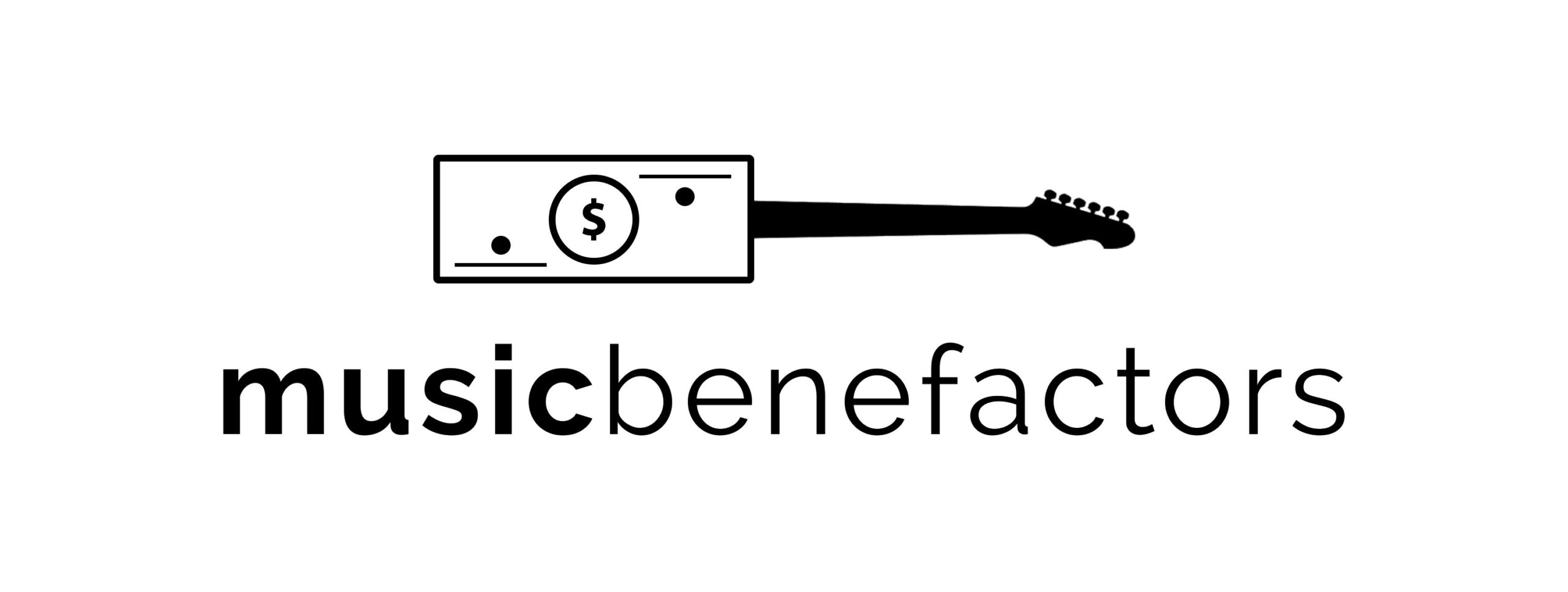Alternative/Rock
Music Benefactors’ Matt Lutz on How They Want to Bring Democracy to the Music Industry
Music Benefactors Matt Lutz talks about how his organisation hopes to bring democracy to the music industry.

The last 14 months for the music industry have been brutal and unrelenting. The COVID-19 lockdowns have decimated the industry across all areas, however, despite this, bands and those involved in this industry have been looking at ways to adapt and continue throughout the struggles. One such organization which has grown over the last twelve months is Music Benefactors, a platform run by experienced businessman Matt Lutz. Offering an investment platform for artists and music businesses alike, Music Benefactors recently took on its first two acts, Latino Grateful Dead band, The Latin Dead, and Californian songwriter Khalil. To find out more about the business model and where Matt sees the music industry post-lockdown, we grabbed him for a quick chat.
Thanks for your time Matt, how is life treating you at the moment?
Matt Lutz: “Things are going well. We’re getting closer to live music every day which makes everyone happier. The artists I’ve spoken to can’t wait to get back out there. Performing for bands is like oxygen for the rest of us. Our music funding platform is really starting to get attention inside and outside the music industry.”
For those people who don’t know Matt Lutz, could you give us a condensed version of your journey so far?
“I’m from Pittsburgh, Pennsylvania. I have two awesome daughters, twelve and 14 years old. I’ve started several businesses, some more successful than others. I was working on another business which brought me into the music industry. A songwriter approached me about raising money by selling the royalties to a song she wrote. I started looking at music royalties as an investment.”
https://www.youtube.com/watch?v=Yiq-I9B98a0
We’re here to talk about your organization Music Benefactors, can you tell our readers a little bit about it?
“Of course. Music Benefactors is the only SEC-registered investment platform for independent recording artists and music businesses. Several years ago, Congress passed legislation which made it easier for private businesses to raise money from investors. It was previously very difficult. If you were a real estate developer or a technology entrepreneur, your options were limited. The only people who could invest in private businesses were wealthy individuals or institutional investors like private equity firms and venture capitalists. The law changes made it legal for everyone to invest in private businesses as long as they used a platform like ours. The first platforms were for real estate and technology. Music Benefactors is the first and only platform for independent recording and music businesses to raise money to fund new projects and capitalize their businesses.”
How did the idea come about and what do you want to achieve through your work?
“The idea came from the songwriter mentioned above. Everyone can understand music investing. Every time music is played, someone gets paid. Music has changed so much with the advent of streaming. You may have noticed how much attention music catalogs are receiving from the investment world. Bob Dylan recently sold his catalog for 400 million dollars. Imagine Dragons got 100 million. The buyers of these catalogs aren’t doing it because they love music. It’s an asset class like stocks, bonds, real estate, oil and gas, etc. Music royalties generate consistent cash flow like real estate and bonds. It’s mailbox money. Every time music is played, the rights holders of the song get paid. Music copyrights last 74 years after the songwriter’s death.
Our plan is to turn regular music fans into music investors. By participating in this asset class music fans can change the music industry. The music industry is dominated by the major labels. The biggest role major labels play is that of lender to artists through advances. When an artist signs with a major label and receives the advance, they are giving up ownership of their music to the label. The artist won’t see a penny from the sale, download, sync (tv or film use) or stream of the music until the label recoups its advance to the artist and any money it has spent making and promoting the music. We want to flip that arrangement. We want the artists to maintain ownership of their master recordings and copyrights. Fans and investors provide the capital needed to make and market music. The artists can make the music they want to make, choose who they want to work with, have enough money to properly market it and own it. The fans will share the income of successful projects. We’re democratizing the music industry.”
There are plenty of “fan-funding” enterprises, what makes Music Benefactors different?
“The biggest difference between other fan funding enterprises and Music Benefactors is with other platforms, fans get a t-shirt, coffee mug or an album which is nice. With us, fans have a financial interest in the project and can make money if the project is successful. Once an artist or band has been successful, it’s awkward to return to a traditional crowdfunder. With us, the fans are more likely to invest again.”
What have been the challenges you’ve faced so far and what has been the hardest lesson you’ve learned?
“The biggest challenge has been getting the first movers to use the platform and we’re getting them now. I think we created a very cool platform to help independent artists and businesses raise money by partnering with fans. It gives them everything they’ve wanted for a long time but it’s different. As much as people say they’re trendsetters or first movers, most aren’t. It took six months to get approved by financial regulators to operate. I was so excited when it finally occurred. I would call artist managers and explain how great the platform is and what we can do for them. They agreed and said, ‘this sounds awesome. Who are you working with?’ We’re breaking through now.”
You’ve picked two completely artists already. What can you tell us about them and why did you pick them?
“I connected with Brenden and Chris from The Latin Dead last year. I did an interview with Digital Music News and they contacted me. They wanted to be the first band ever to sell equity to the public and they are. They have such a cool plan. They’re reverse-engineering things. Really Khalil contacted us a couple months ago. His story is amazing. The guy was homeless twice, once as a child and then as a young adult. He’s done everything on his own to this point and has made some great music. He’s an inspiration.”
From your work so far, what is the biggest surprise you’ve had about the music business?
“The biggest surprise about the music business in my experience has been how open most people are to listening. We focus on independent music so it’s not like I’m not trying to contact the CEOs of Warner or Universal. I spend a considerable amount of time on the phone and I send so many cold emails and intros on LinkedIn. People are generally receptive to hearing what I have to say. It’s been good. We’re trying to help independents so if we can bring value, they’ll listen.”
Over the years the music industry landscape has changed dramatically. What do you think are the good and bad aspects of the industry in 2021?
“Bad: the artist and writer share of streaming revenue. It’s increasing as more people move to streaming but it’s not fair in its current form. The SoundCloud user-centric model is best for artists. Artists, especially independent artists had become so dependent on live music because they weren’t making money from streaming. It reinforces our argument that artists need to own their music and be the rights holders. The rights holders, major publishers and labels, are more profitable than they’ve been in 20+ years.
Good: music and the music business are constantly evolving. There are some really cool music tech companies being founded. Great music is being made daily. We hope to be the funding partner to help make great music and cool companies to be created.”
It’s been a brutal year for the industry given the effect of lockdown. How do you think it will be different coming out of the other side?
“It’s been awful. We decided to locate our business in Nashville. I was there in February of 2020 looking for office space. Two weeks later, a tornado ripped through town. Two weeks after that, the world shut down. Luckily we didn’t sign a lease for space we couldn’t use. I think you’ll see a rediscovering of local music. It will take a little longer for national touring acts to hit the road. People are dying to see live music. I couldn’t tell you how many music documentaries I watched last year. I’d love to see people just flood to their local independent venues.”
As you come out of the other side, what are your hopes on a personal and business level looking forward?
“We’d like to help as many independent recording artists and music businesses as we can. We have several offerings in the pipeline. We’re raising money for The Best Music Company which is a royalty administrator. They’re raising 5 million dollars for a fund to invest in music catalogs. We are doing two country music projects. If you know some solid rock bands, we’d love to work with them. Bringing the fan further into the business can only help independent music flourish.
Personally, to continue appreciating what I have. It was a struggle to get to this point. I tried raising venture funding and wasn’t successful so I bootstrapped this thing. It’s completely self-funded. I worked side gigs for the past two years while I’ve been working on this. I know what musicians go through to make music.”
For any bands reading this article about yourself and Music Benefactors, why do you think they should fill in the contact form on your website and hit send?
“We can give bands the funding needed to be truly independent; independent with money. They can make, market and own the music they want to make. There’s no shortage of good music. Getting it heard is what’s expensive. Can you imagine what a talented independent band could do with a sizable marketing budget?”
Thanks again for your time. Over to you for the final words…
“Thanks for having me. I really appreciate it. Thanks for pulling back the curtain and allowing us music fans to know the artists and bands.”
-

 Alternative/Rock6 days ago
Alternative/Rock6 days agoThe Warning Shake the Foundations of a Sold-Out Leeds Stylus [Photos]
-

 Music2 weeks ago
Music2 weeks agoTake That (w/ Olly Murs) Kick Off Four-Night Leeds Stint with Hit-Laden Spectacular [Photos]
-

 Alternative/Rock6 days ago
Alternative/Rock6 days agoThe V13 Fix #011 w/ Microwave, Full Of Hell, Cold Years and more
-

 Features2 weeks ago
Features2 weeks agoTour Diary: Gen & The Degenerates Party Their Way Across America
-

 Indie6 days ago
Indie6 days agoDeadset Premiere Music Video for Addiction-Inspired “Heavy Eyes” Single
-

 Folk7 days ago
Folk7 days agoKatherine Perkins Strikes the Right Tone with Her “Hold On” Music Video Premiere
-

 Country1 week ago
Country1 week agoBrooke Ashton Chats About Her “Someone” Single, Creative Process, and More!
-

 Culture3 days ago
Culture3 days agoRob Lundberg’s “Uncontaminated Sound – The Interviews” EP #67 w/ Joshua Farinella of The Whistleblower















